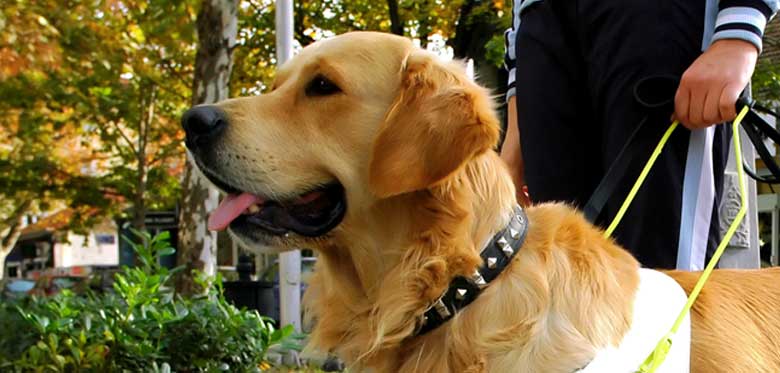Assistance dogs are auxiliary aids and as such, they are considered to be integral to assisting disabled individuals in coping with various aspects of their day-to-day lives.
In the Equality Act 2010, an assistance dog is defined in section 173 as:
- a dog which has been trained to guide a blind person
- a dog which has been trained to assist a deaf person
- a dog which has been trained by a prescribed charity to assist a disabled person who has a disability that consists of epilepsy or otherwise affects the person's mobility, manual dexterity, physical co-ordination or ability to lift, carry or otherwise move everyday objects
- a dog of a prescribed category which has been trained to assist a disabled person who has a disability (other than one falling within paragraph (c)) of a prescribed kind.
This therefore means, that venues, such as, restaurants, cafes and pubs are required to make reasonable adjustments for disabled customers, including those with assistance dogs.
The act prohibits discrimination arising out of a disability where, for example, a blind person is denied access to a venue, not because they are blind, but because they have and require the assistance of a guide dog.
Venues are therefore under an obligation to ensure that a disabled person is not put at a disadvantage due to their need for an assistance dog. For example, a person should not be charged an additional fee for cleaning or to sit in a specific area to keep their dog away from other customers. Venues such as restaurants are not permitted to prohibit an assistance dog owner entry, because assistance dogs are considered to be highly trained and are therefore unlikely to pose a risk to hygiene in the premises.
Venues can provide support to assistance dog users by:
- amending their ‘no dogs’ policy to make an exception for assistance dogs;
- displaying an ‘open doors’ sticker;
- ensuring seating areas have sufficient space so that the assistance dog can remain with it’s user;
- Stadiums can also consider providing a ‘dog spending room’ where assistance dogs can be looked after while the user is enjoying a show.
Venues are obliged to provide access to assistance dog users and the above highlighted suggestions are just a few ways in which venues can make their premises more accessible for everyone.
If you are service provider or operate from a venue and you are unsure with regard to your responsibilities for accommodating disabled customers with assistance dogs, or if you require advice about accessing venues with your assistance dog, please do not hesitate to contact our specialist discrimination law team on 01616 966 229.
By Kruti Vyas, graduate paralegal



Comments